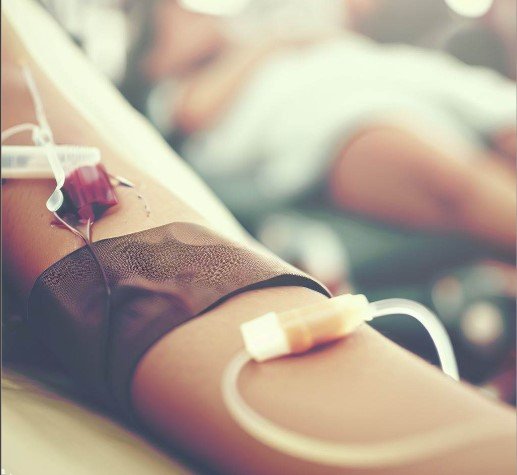World Blood Donor Day, also known as Blood Donation Day, is an annual event celebrated on June 14th worldwide. It serves as a reminder of the importance of blood donation and recognizes the invaluable contribution of voluntary blood donors in saving lives. In this article, we will delve into the significance of World Blood Donor Day, explore the process of blood donation, and highlight the impact it has on individuals and communities.
World Blood Donor Day – Blood Donation Day: Why It Matters
Blood donation is a selfless act that has a profound impact on society. By donating blood, individuals contribute to the well-being and survival of others, often complete strangers. The need for blood is constant, and it plays a vital role in various medical procedures, emergencies, and treatments. World Blood Donor Day aims to raise awareness about the importance of blood donation and encourage more people to become regular donors.

The Life-Saving Gift of Blood Donation
Blood donation is often referred to as the “gift of life” because it can save lives in critical situations. Many medical conditions and emergencies require blood transfusions to sustain patients and support their recovery. Whether it’s a patient undergoing surgery, an accident victim in need of immediate transfusion, or an individual with a chronic illness requiring regular blood transfusions, donated blood provides a lifeline.
Addressing Blood Shortages and Ensuring Adequate Supply
Despite the importance of blood donation, there is often a shortage of blood supply in healthcare systems worldwide. World Blood Donor Day aims to address this issue by encouraging more people to donate blood and ensuring a consistent and sufficient supply of blood for medical facilities. The demand for blood is high, and by increasing awareness and participation, we can bridge the gap between supply and demand.

The Process of Blood Donation
Blood donation is a simple yet impactful process that involves a series of steps to ensure the safety and well-being of both donors and recipients. Here is an overview of the blood donation process:
Eligibility and Screening
Before donating blood, potential donors are assessed for their eligibility. Certain criteria, such as age, weight, overall health, and specific medical conditions, are considered during the screening process. This step ensures that the blood collected is safe for transfusion.
The Donation Procedure
Once cleared for donation, individuals proceed to the donation area. The process typically involves the following steps:
- Registration: Donors provide their personal information and consent to the donation process.
- Medical History: Donors are asked questions about their medical history and lifestyle to identify potential risk factors.
- Mini-Physical Examination: A healthcare professional measures the donor’s blood pressure, pulse, temperature, and hemoglobin level to ensure they are fit for donation.
- The Donation: Donors are seated comfortably while a sterile needle is inserted into a vein in their arm. Approximately 450 milliliters of blood is collected during a single donation.
- Refreshments and Rest: After donation, donors are encouraged to rest and replenish their fluids and energy with provided refreshments.
Testing and Processing
After collection, donated blood undergoes rigorous testing to ensure its safety. It is screened for various infections, including HIV, hepatitis, syphilis, and other blood-borne diseases. Additionally, blood components like red blood cells, platelets, and plasma are separated and processed for specific medical needs.
Distribution and Transfusion
Once the donated blood passes all necessary tests and processing, it is ready for distribution to hospitals and medical facilities. Medical professionals utilize these blood components to perform transfusions and provide essential treatments to patients in need.

FAQs (Frequently Asked Questions)
1. What are the health benefits of blood donation?
Blood donation not only saves lives but also offers certain health benefits to the donors. Regular blood donation helps in maintaining healthy iron levels, reducing the risk of heart diseases, and stimulating the production of new blood cells.
2. How often can I donate blood?
The frequency of blood donation depends on various factors, including the country’s regulations and your health condition. In many countries, individuals can donate whole blood every 8 to 12 weeks.
3. Are there any side effects or risks associated with blood donation?
Most blood donors experience no significant side effects. However, some individuals may experience minor symptoms like dizziness, lightheadedness, or bruising at the needle site. These symptoms are usually temporary and resolve quickly.
4. Can I donate blood if I have a chronic illness?
The eligibility to donate blood depends on the type and severity of the chronic illness. Certain conditions may disqualify individuals from donating, while others may allow donation under specific circumstances. It’s best to consult with healthcare professionals or blood donation centers to determine your eligibility.
5. Is blood donation safe during the COVID-19 pandemic?
Yes, blood donation remains safe during the COVID-19 pandemic. Blood centers adhere to strict safety protocols, including enhanced sanitation, social distancing, and donor screening, to ensure the safety of donors and recipients.
6. How can I find a blood donation center near me?
To find a blood donation center near you, you can reach out to local hospitals, medical facilities, or blood banks. Additionally, many blood donation organizations have websites and online tools that help locate nearby centers and provide information on donation campaigns and events.
World Blood Donor Day – Blood Donation Day serves as a reminder of the importance of blood donation and the impact it has on individuals and communities worldwide. By donating blood, you can make a significant difference in someone’s life and contribute to a healthier and safer society. Remember, every donation counts, and your generosity can save lives. Join the cause and become a blood donor today.




















